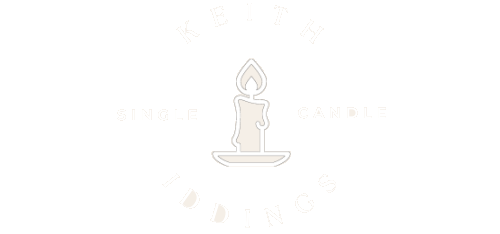It’s Complicated!

For several months now, I have felt a bit on the defensive concerning many of the issues that have surfaced during 2020. Perhaps you have as well. I know it’s rather paranoid of me, but it feels as if my every action or decision is subject to critical review and judgement.
Having spent much of my professional life in leadership roles at universities, I would say I’ve been subject to my share of criticism. But somehow this year has felt different. Nothing seems neutral. Seemingly even the most mundane or reflexive actions have been elevated to an inflated level of ideological, political, or even theological importance.
To make matters worse, I’ve fallen into the same trap. I, too, seem inclined to be judgmental and picky. Much to my chagrin, I can’t seem to help myself. Because there is diversity in my own community and family with respect to how one should think and behave, I feel I must justify my own views. This activity, in turn, results in my finding other viewpoints wanting.
Yet I hate to admit my thinking isn’t infallible. (Surprise!) And my biggest problem is over-simplification. I tend to see matters in terms of single, simple polarities with a continuum between. But if I take the time to consider, I don’t think that’s really how things are. The concepts of “good” and “bad” are as complex as the light spectrum, made up of an infinite number of elements.
I aspire to be a “mature” Christ-follower. But maturity is dauntingly complex. What does it even mean? There are an incredible number of dimensions and while I may be well along in some, I’m woefully backward in others.
The Fear – Faith Continuum
As an illustration of how things can quickly get muddled, let’s just take the issue of public health behavior during the current pandemic. Despite the advice of our governor, the CDC, and medical professionals, over the past several months I’ve had many in my circle of acquaintances insist that we should go on living our lives normally. Their argument has a distinctively spiritual ring to it. They contend fear has no place in the Christian’s life.
Who can disagree? We are to be people of faith. God is more than able to protect us from a biological particle that isn’t technically even alive. So a mature Christian has no reason to skip the big family Thanksgiving gathering or the annual trip to the beach. Right? Well . . . maybe it’s more complicated than that simple dichotomy. I can think of several other dimensions of Christian maturity that might need to be considered beyond just Fear/Faith.
The Presumption – Prudence Continuum
For example, isn’t there the Presumption/Prudence continuum? It would seem wisdom calls for the mature Christian to act with prudence and seek to avoid unnecessary risk rather than presume upon God’s intervention. Nor does it seem right to take a fatalistic stance, willing to accept as “God’s will” whatever may come our way even though it may be a result of our own foolishness.
God has given us brains to use. It’s part of the wonder of the image of God. We don’t necessarily take issue with washing our vegetables or wearing our seat-belts. We tell our teens not to text and drive. So why wouldn’t we consider prudence important when discussing disease prevention in a time of a rapidly spreading virus?
The Rights – Compassion Continuum
And what about the Rights/Compassion continuum? There is no question that freedom is at the heart of the Gospel. Christians are, indeed, set free. Doesn’t Jesus say, “If the Son makes you free, you shall be free indeed?” (John 8:36) Yet isn’t freedom also to be constrained by love? Doesn’t Paul explain to the Corinthians that although they have every right to do whatever they choose, they should not exercise that right for their own selfish ends. He says, “Let no one seek his own good, but that of his neighbor.” (1 Corinthians 10:24)
Hmm. This would seem to complicate Christian maturity. If the mature Christian is the one who thinks first of his or her neighbor, it’s pretty tough to spend a lot of time pontificating about individual rights and privileges. I’d even go so far as saying that wearing a mask in public or foregoing in-person Sunday School in favor of a Zoom class are pretty minor sacrifices of personal freedom on behalf of the good of our neighbors.
The Fatigue – Perseverance Continuum
And then there’s the annoying Christian call to perseverance? Does that not apply to virtue when it comes to public health? Loving others may, at times, be quick and easy. Sustained effort isn’t required when your neighbor’s garbage can blows down the road and you run to retrieve it. Or when you take a Saturday afternoon to clean the gutters of a shut-in from your church. These are wonderful expressions of selfless service. But they rarely take long-term effort.
On the other hand, there are sacrifices the life of love calls for that require long, grinding effort. Many of us know the wonder of a spouse who for a decade cares for a husband or wife afflicted with dementia. Or the parent of a quadriplegic child debilitated in an accident. This type of loving marathon calls for the individual to push through fatigue and demonstrate the perseverance reflected in God’s love for us. Perhaps, “Covid fatigue” isn’t value-neutral for the Christian. It may be that the marathoner’s tenacity is called for in a pandemic.
Didn’t the writer of Hebrews call us to, “Run with endurance the race that is set before us, looking only at Jesus . . . .” (Hebrews 12:1-2)
The Indulgence – Sacrifice Continuum
Of course, we can’t really discuss the polarities mentioned above without looking at the role of sacrifice. I, for one, would like to ignore it. But the fact is, love, at its most basic level, is the subordination of self-interest and the elevation of the needs and desires of the other. And that means that, almost without exception, love will involve sacrifice.
Sometimes the sacrifices called for by love are a joy. Giving gifts at Christmas time often require us to spend money on others that we could spend on ourselves. But there is something wonderful about seeing the delight as a child we love opens our present. It warms our own hearts and repays us tenfold. Such sacrifices don’t really feel much like sacrifice.
But if we go deep into love (as Jesus did) we inevitably find love demanding inconvenience, annoyance, difficulty, and even pain. Our natural tendency is to pull back into self-indulgence rather than lean into sacrifice — sometimes even when it is as simple as refraining from visiting a friend for the sake of public health.
Yet I am haunted by Paul’s call to imitate Christ Jesus, who was willing to leave His exalted position for our sake, taking on the role of a servant, and ultimately dying for us. (Philippians 2:3-8).
The Tradition – Adaptation Continuum
There is nothing wrong with conservatism. As Tevia asserts in the Broadway hit, “Fiddler on the Roof,” life is a balancing act not unlike a fiddler’s precarious perch on a rooftop. We are able to keep our balance through observing the rich traditions of our religious and cultural heritage. The inevitable changes around us are made more tolerable through the stability of traditions.
Yet what happens when change requires adaptation? What happens when our traditions become toxic to our society rather than helpful? What results when the ceremonies and practices we have cherished so long are actually harmful to others?
If you are like me and have lived a good many years, you may not like too many changes to the familiar patterns of your life. After all, we live in a time of hyper-accelerated advancement. The pace of progress can be exhausting. I can’t tell you how frustrated I am with the constant changes to as little a thing as my cell phone’s operating system, for example. And that’s just one of a myriad of changes I constantly face. (Do I really need to figure out one more way to use my credit card at the store?)
So it is somehow comforting to me to be able to go to a traditional church service with the hymns I grew up with and a pattern of worship with which I’m familiar. And then comes the pandemic. And our public health officials call for me to avoid gatherings of large groups–especially when there is singing involved. What am I to do?
I’m enough of a student of the Bible to know that Hebrews 10:25 provides very little justification for going to in-person worship in this day of advanced communication technology. The command to “encourage one another” can be accomplished in far more ways today than in the first century. Should I still cling to a tissue-thin excuse, even knowing gatherings can be a leading cause of spreading the virus to the community? Or, can I adapt and still stay balanced on the roof?
Etc.
I could certainly continue to list other continua and other poles, but I think you get the idea. To justify my reluctance to make the small life adjustments called for by our public health professionals, I may be tempted to accept only the Fear/Faith dichotomy. After all, my impulse is to decide what I want to do based on my gut and then find justification for it. (You might check out the principle of Confirmation Bias.)
But if I’m truly serious about pursuing Christ with my whole heart, I need to go deeper into the complexity of Christian maturity. Life’s questions are not simple. Yet, if we honestly embrace the challenge of its intricacies with the Bible in our hands, a heart to love others within, and callouses on our knees, we will find the Holy Spirit is a mighty good teacher.

